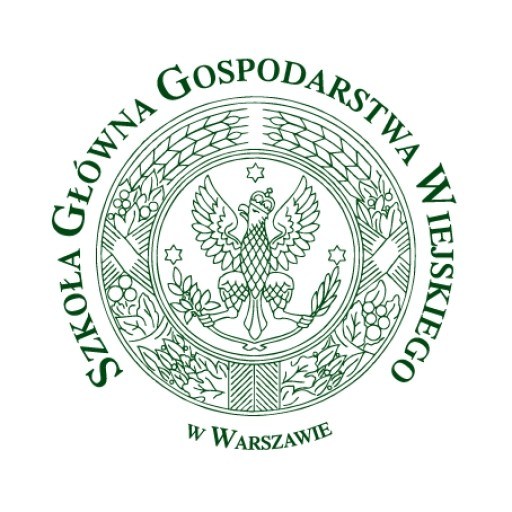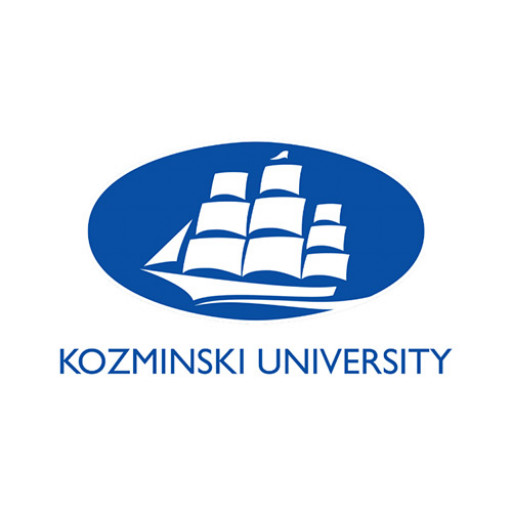The Bachelor’s degree programme in Informatics and Econometrics with a specialization in Information Systems in Management at Warsaw University of Life Sciences offers a comprehensive education designed to equip students with the theoretical knowledge and practical skills necessary to effectively analyze, design, and implement information systems within the context of economic and managerial processes. This interdisciplinary programme integrates core principles from computer science, informatics, and econometrics, providing a unique blend of technical expertise and economic understanding that is highly valuable in today’s data-driven business environment.
Throughout the course of study, students will explore fundamental topics such as programming, database management, software engineering, and data analysis, alongside economic modeling, financial analysis, and managerial decision support systems. The programme emphasizes the development of competencies in handling large datasets, performing statistical and econometric analyses, and utilizing modern information technology tools to improve organizational efficiency and decision-making processes. Special attention is given to the application of information systems in various management fields, including supply chain management, marketing, finance, and strategic planning.
Students will have opportunities to participate in practical projects, internships, and workshops, enabling them to apply theoretical knowledge to real-world scenarios. The curriculum is designed to foster critical thinking, problem-solving skills, and teamwork, preparing graduates for careers in IT management, business consulting, data analysis, and information systems development within diverse industries. The programme is delivered by experienced faculty members and industry specialists, ensuring students receive a high-quality education aligned with current market needs.
Graduates of this programme will possess a strong foundation in informatics and econometrics, complemented by specialized knowledge in management information systems, making them highly competitive candidates for employment in both the private and public sectors. They will be prepared to take on roles such as systems analysts, business intelligence specialists, data analysts, and IT consultants, contributing to the digital transformation and strategic growth of organizations. This degree programme is an excellent choice for individuals passionate about combining technology, economics, and management to solve complex business challenges and drive innovation.
The Informatics and Econometrics program with a specialization in Information Systems in Management at Warsaw University of Life Sciences is designed to equip students with comprehensive knowledge and skills in the fields of informatics, econometrics, and management information systems. The program emphasizes the integration of advanced computational methods, data analysis techniques, and economic modeling to prepare graduates for careers in business analytics, information management, and decision support systems. Throughout the curriculum, students gain a solid foundation in programming, databases, systems analysis, and design, alongside specialized courses in econometric modeling, statistical data analysis, and the application of information technology in managerial decision-making. The program also covers topics such as enterprise resource planning, business intelligence, data visualization, and information security, ensuring students are well-versed in contemporary tools and methodologies used in the digital economy. Practical training is a core component of the program, with laboratory exercises, projects, and internships designed to enhance hands-on experience and problem-solving abilities. Graduates will be prepared to analyze complex data sets, develop and implement information systems, and contribute strategic insights to organizations. The interdisciplinary nature of the program fosters the development of critical thinking, analytical skills, and adaptability, enabling students to meet the evolving demands of the modern business environment. With faculty composed of experienced academics and industry practitioners, students benefit from a mixture of theoretical knowledge and real-world application. Upon completion, graduates are equipped to pursue careers in various sectors including consulting, finance, public administration, and IT consulting, or to further their studies at the postgraduate level. The program’s curriculum is periodically updated to reflect technological advancements and current industry trends, ensuring that students acquire relevant and up-to-date skills. Join the Informatics and Econometrics program at Warsaw University of Life Sciences and become a proficient analyst and decision-maker capable of leveraging information systems for organizational success.
Students require a Bachelor of Science (BSc) or an equivalent degree in Agriculture or a related discipline (e.g. Biology, Food Technology, Economics, Nutrition Sciences, Environmental Sciences) following at least three years of university studies. English language skills.
Students from all countries of the world can apply for the EUR-Organic programme.
The financing of the Informatics and Econometrics (Specialisation: Information Systems in Management) program at Warsaw University of Life Sciences is primarily supported through a combination of public funding, university resources, and student payments. The university, as a public institution, allocates a significant portion of its budget to ensure the sustainability and development of its academic programs, including this specialization. Tuition fees paid by students constitute a vital part of the program's financial structure, covering costs related to teaching staff, educational materials, and technological infrastructure. The fees are set in accordance with regulations governing higher education in Poland and may vary depending on the student's nationality (Polish or international) and the type of program (full-time or part-time).
Additionally, the university actively participates in national scholarship programs, funding opportunities for students, and grants aimed at fostering research and innovation in information systems and management. Students may also have the opportunity to apply for targeted scholarships for merit, social reasons, or specific fields of study, which can ease the financial burden and enhance access to quality education. The program may also receive external funding through partnerships with industry and IT companies interested in collaborating on research projects and providing internships, which can contribute indirectly to the program's financial stability and development.
Warsaw University of Life Sciences encourages students to seek external sources of funding, including Erasmus+ exchange programs, which may provide financial support for mobility and study abroad opportunities. Furthermore, students enrolled in the program are often encouraged to apply for research grants and participate in competitions that can provide stipends or funding for innovative projects related to information systems in management. Overall, the financing strategy of this program aims to ensure high-quality education, modern infrastructure, and continuous curriculum enhancement while maintaining affordability for students. Despite the reliance on various funding sources, the university strives to keep tuition fees reasonable and to expand scholarship opportunities, making the program accessible to a diverse student body.
The Bachelor’s degree program in Informatics and Econometrics with a specialization in Information Systems in Management at Warsaw University of Life Sciences (WULS-SGGW) is designed to prepare students for a dynamic career at the intersection of information technology and economics. This program offers a comprehensive curriculum that combines core principles of computer science, data analysis, and economic theory, with a particular focus on the application of information systems in managing and analyzing economic data.
Students enrolled in this program gain a solid foundation in programming languages, database management, and information system design, alongside courses in microeconomics, macroeconomics, and financial mathematics. The curriculum is structured to cultivate practical skills through laboratory exercises, project work, and internships, enabling graduates to operate efficiently in consulting firms, financial institutions, government agencies, and private enterprises that rely on robust information systems for decision-making and strategic planning.
The program emphasizes modern information technologies such as data mining, machine learning, big data analytics, and enterprise resource planning (ERP) systems, equipping students with the skills to implement and manage complex technological solutions in economic environments. Additionally, students learn about the legal, ethical, and security issues related to data management and information systems, which are crucial in today’s data-driven economy.
The department collaborates with industry partners to provide students with real-world experience and internship opportunities. Graduates of the program are expected to have not only technical and analytical skills but also an understanding of economic processes and managerial principles, making them versatile professionals capable of developing information systems that support optimal business decisions.
The program's infrastructure includes access to state-of-the-art computer laboratories, software applications, and online learning resources to facilitate an engaging learning environment. Graduates often continue their education at master’s level, specializing further in fields such as data science, business analysis, or economic modeling, or they enter the workforce directly, taking up roles such as data analysts, IT consultants, economic advisors, or systems managers. The program is designed to meet the growing demand for specialists who can bridge the gap between information technology and economics, contributing to efficient management and innovative solutions in the modern economy.







